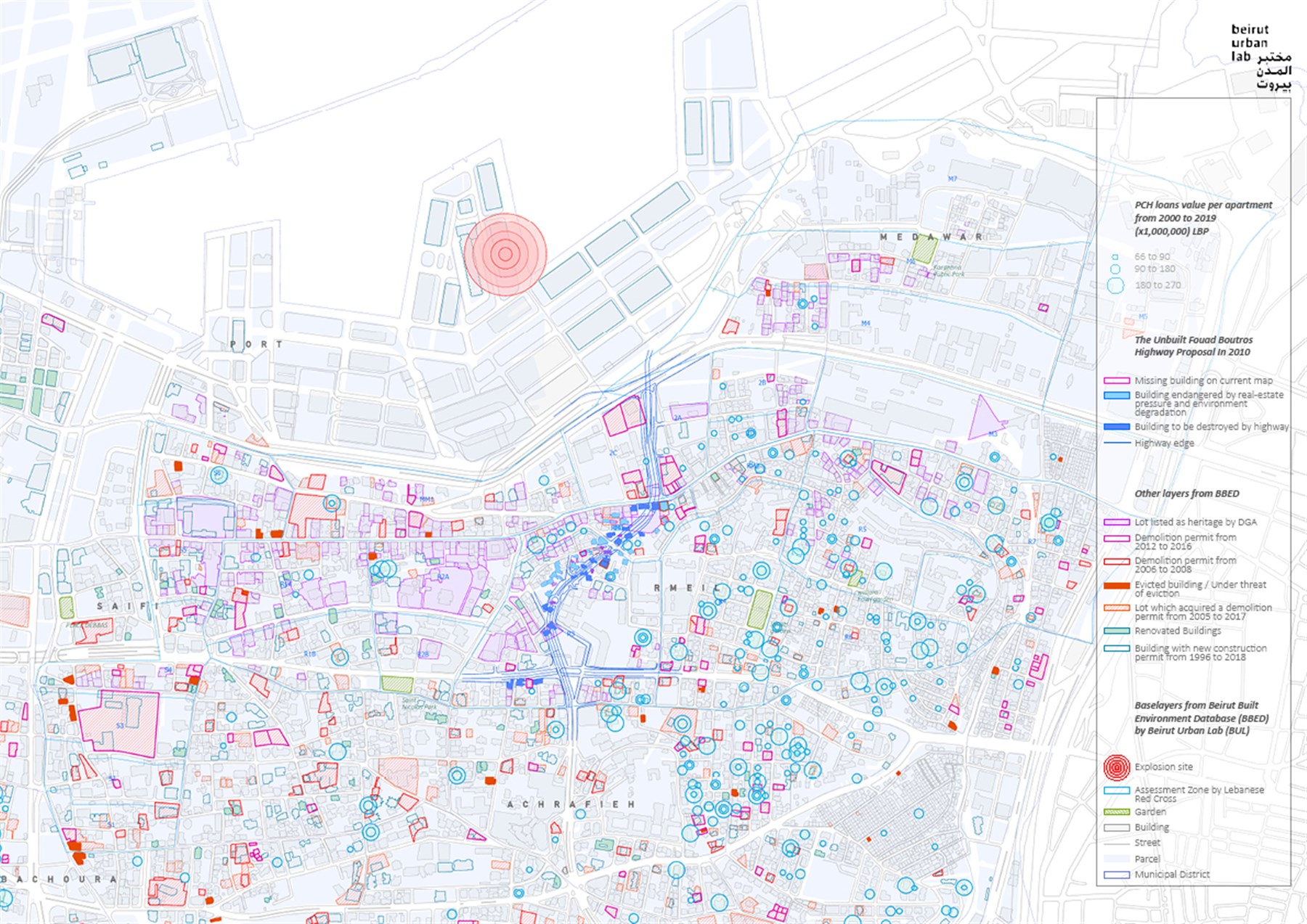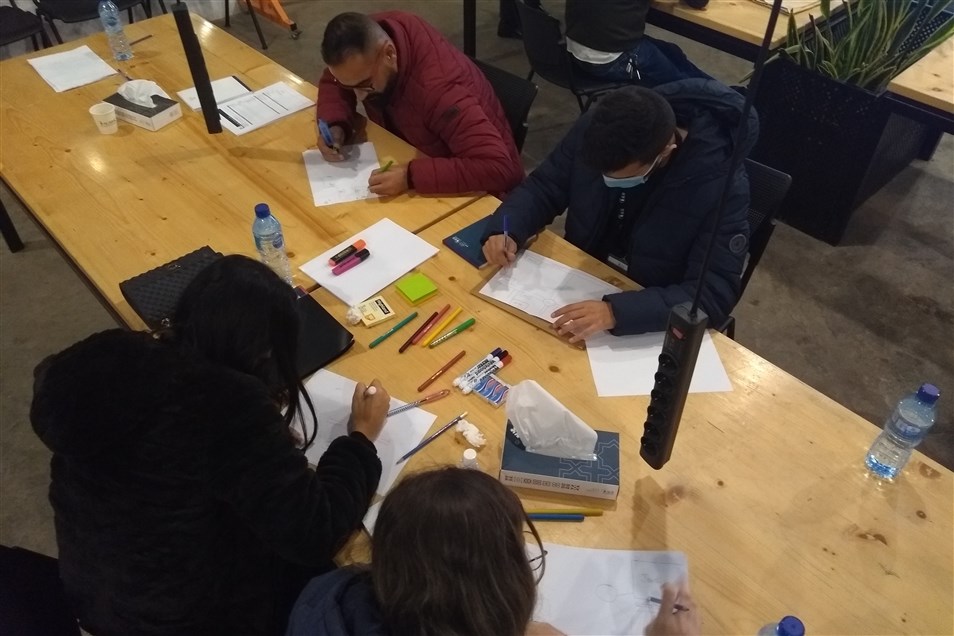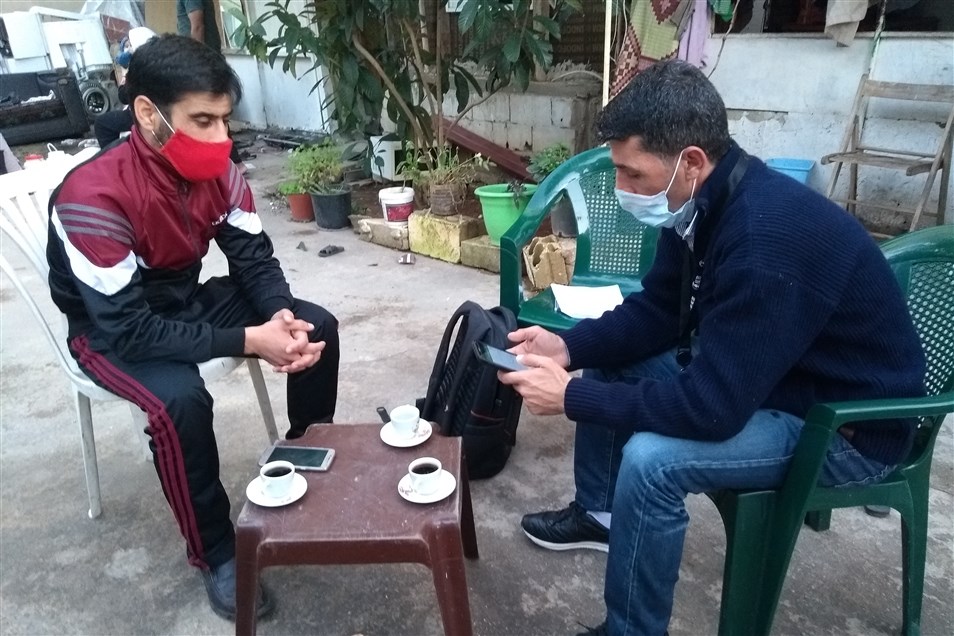Initiatives in Response to the Beirut Blast
How to ensure a people-centered holistic recovery process, in ways that are inclusive, gender-sensitive, and environmentally sustainable, in order to redress deep-rooted socio-spatial inequalities and reclaim the public domain?
On the 4th of August 2020, the huge explosion that detonated in the Port of Beirut killed more than 200 people and wounded 6,000, and left dozens missing. Surveys show that 300,000 homes and livelihoods have been affected in several neighborhoods adjacent to the Port. The Beirut Urban Lab mobilized in response to the blast to support efforts on the ground and to initiate its own work upon site visits and early assessment of the situation. It is possible to identify some of the typical patterns associated with earlier post-disaster responses. In a context where state institutions play at best a subdued role and are failing to position themselves as the custodians of a common good, the challenge of coordinating a people-centered recovery is massive (see Fawaz and Harb, 2020). Many actors operate in the absence of coordination and shared vision or framework. The de-facto reconstruction approach set in place through the involvement of most stakeholders is generally based on quantitative and physical assessment of damages, in which buildings are the focus. While the approach is important to introduce the necessary physical repairs, it falls short from understanding urban recovery as a holistic and multilayered process, one that goes beyond the physical and the humanitarian to include an actual reconciliation of people with place.
It further fails to locate the blast within historical urban processes that have shaped the production of the severely affected neighborhoods, addressing it, instead, as a momentary rupture (See Al-Harithy, 2020, Fawaz, 2020). However, unlike previous patterns, and given the political landscape in Lebanon before and after the actual moment of the blast, the Lebanese Army emerges in this case as the lead in coordinating efforts on the ground. This unprecedented model for Lebanon has many uncertainties and creates a new top-heavy influence on the recovery process. Building on its experiences in urban policy advocacy, mapping, and post-war reconstruction studies, and supported by generous funding from the International Development Research Centre (IDRC) in Canada, the Fondation de France, the Columbia World Projects, the Institut Français du Proche Orient, and others, the Beirut Urban Lab initiated multiple interventions that challenge the dominant framework of post-blast reconstruction and redefine it along the lines of a holistic and inclusive recovery. Within this larger objective, the Lab is leading on three tracks, in coordination with multiple partners. These tracks are: The Observatory of the Reconstruction, Neighborhood-Scale Recovery Interventions, and Visioning the City in the Post-Blast Period.
The Observatory of the Reconstruction

Neighborhood-Scale Recovery Interventions
Karantina is serving as a first case study for the initiation of a bottom-up, inclusive and people-centered recovery process. This work at the neighborhood level relies on surveys aiming to highlight economic networks, tangible and intangible heritage as well as socio-spatial narratives of residents. In addition, capacity building workshops are supporting and facilitating shared information, vision, and participation in co-designing the local recovery framework. Strategic interventions at the scale of the neighborhood will be elaborated, integrating low-tech innovative green and sustainable systems for the advancement of healthy urban environments and futures, with the participation of professionals and residents in community-based multidisciplinary workshops. Mapping plays a central role in these processes, as maps serve as a basis for community discussions and then as documents visualizing designs and interventions. The work is ongoing in partnership with the UNDP based on a common methodology of research, field work, community engagement, and recovery framework design. Strategic spatial interventions are carried out in collaboration with other actors including the Near East Foundation and the Institute of Global Prosperity (IGP) at the University College London.


Visioning the City in the Post-Blast Period

